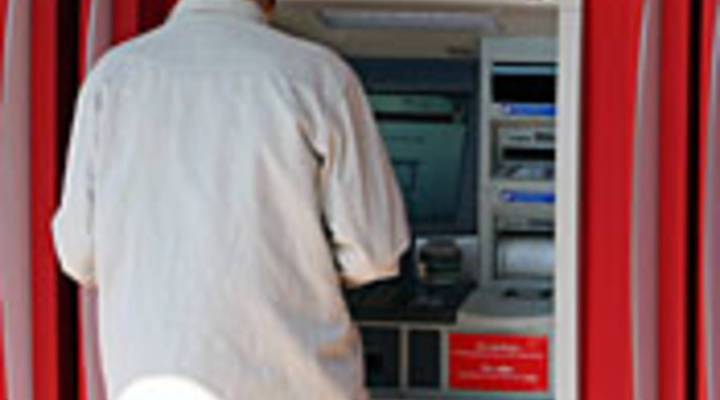
Congress looks to limit debit card fees

TEXT OF STORY
Bob Moon: Speaking of banking regulations, as we were a moment ago, and we have been for months now. You’ve probably heard that Congress has tightened up the rules on credit cards. But it seems debit cards are another matter. When we use plastic these days, there’s a better chance it’s a debit card. And for banks that had relied on late fees and interest charges, that’s created a bit of a problem. So it seems they’re looking to our new preference in plastic to make up the difference. And our Stacey Vanek-Smith reports lawmakers have noticed.
STACEY VANEK-SMITH: So you’re low on cash, and you use your debit card for your morning macchiato, then comes the real jolt. That coffee just cost you $40. Because your checking account was empty, and the bank charged you a $35 fee to cover the purchase. It’s called overdraft protection, and banks are expected to make more than $38 billion off it this year.
RON SHEVLIN: What you’re really getting charged for is the bank’s ability to charge you for it.
Ron Shevlin is a financial analyst at the Aite Group. He says these days banks are squeezing all they can out of debit cards because they’re one of the few parts of the business that’s growing.
SHEVLIN: They’re issuing less and less mortgages and home equity loans, and less credit cards. And so the over-draft fees have been areas they have focused on generating a lot of revenue.
Banks say overdraft protection spares people embarrassment, but Eric Halperin, with the Center for Responsible Lending, points out that most banks won’t let you opt out of overdraft protection. In that way, he says, banks have just found a way to turn debit cards into credit cards.
ERIC HALPERIN: Debit cards were originally marketed as this great tool for consumers, because it only allows you to spend the money you have. Banks turned that debit card now into a credit card that charges rates that no other credit card on the market does.
Congress is looking into regulating debit cards by letting consumers opt out of overdraft protection and making fees more reasonable. So instead of paying a flat $35 fee for your $4 machiatto loan, you’d pay something like a couple dollars, which would probably be a lot easier to swallow.
I’m Stacey Vanek-Smith for Marketplace.
There’s a lot happening in the world. Through it all, Marketplace is here for you.
You rely on Marketplace to break down the world’s events and tell you how it affects you in a fact-based, approachable way. We rely on your financial support to keep making that possible.
Your donation today powers the independent journalism that you rely on. For just $5/month, you can help sustain Marketplace so we can keep reporting on the things that matter to you.












